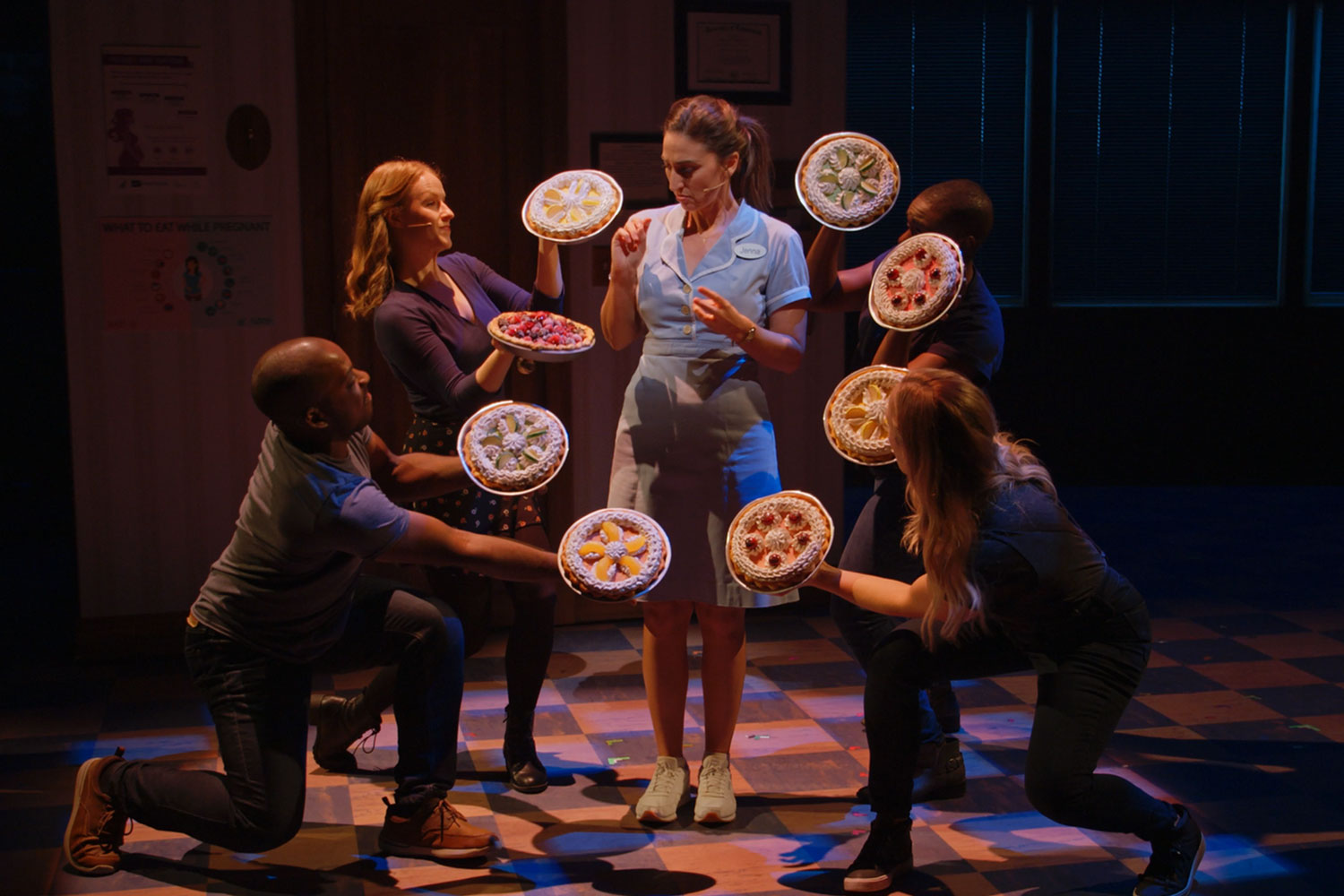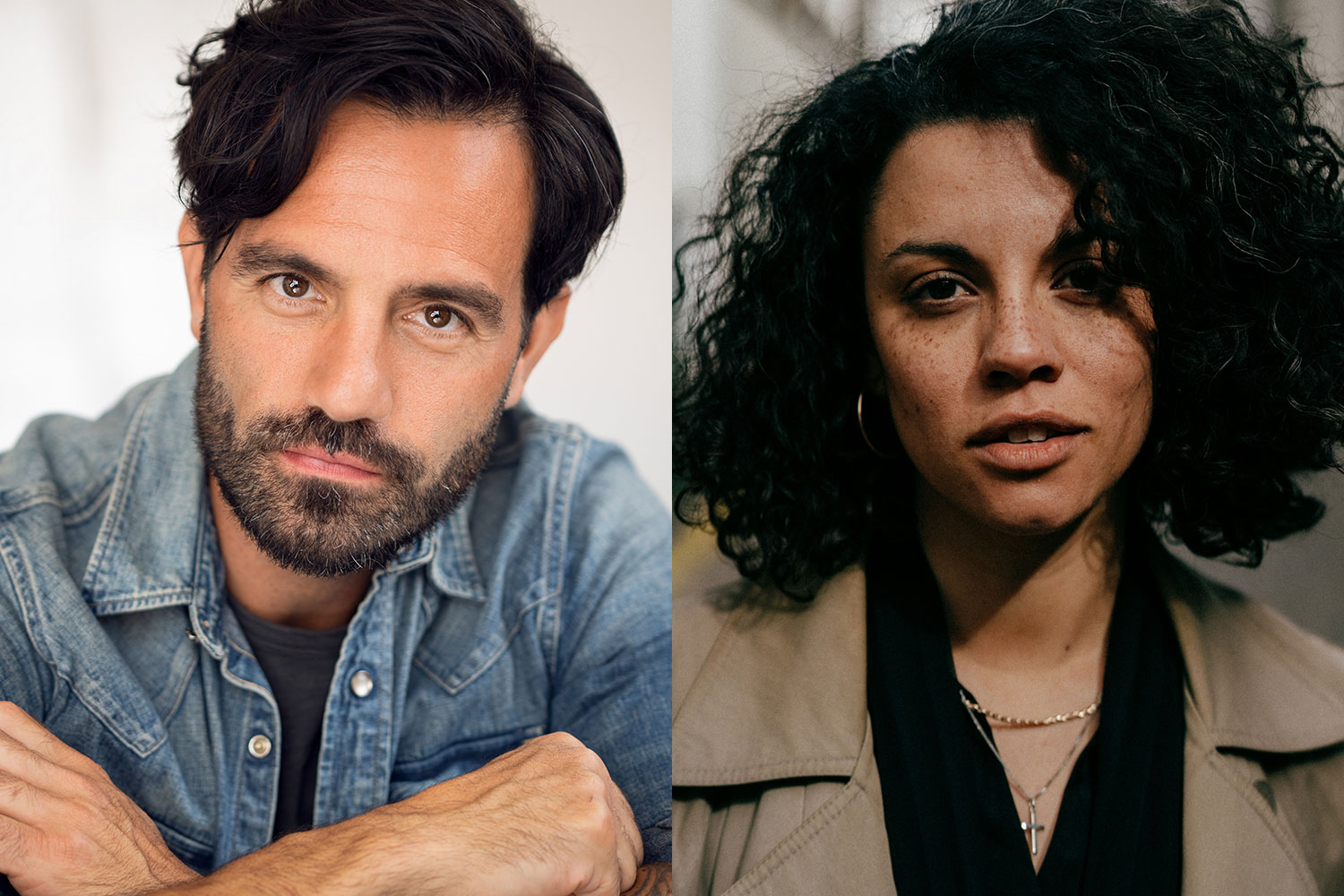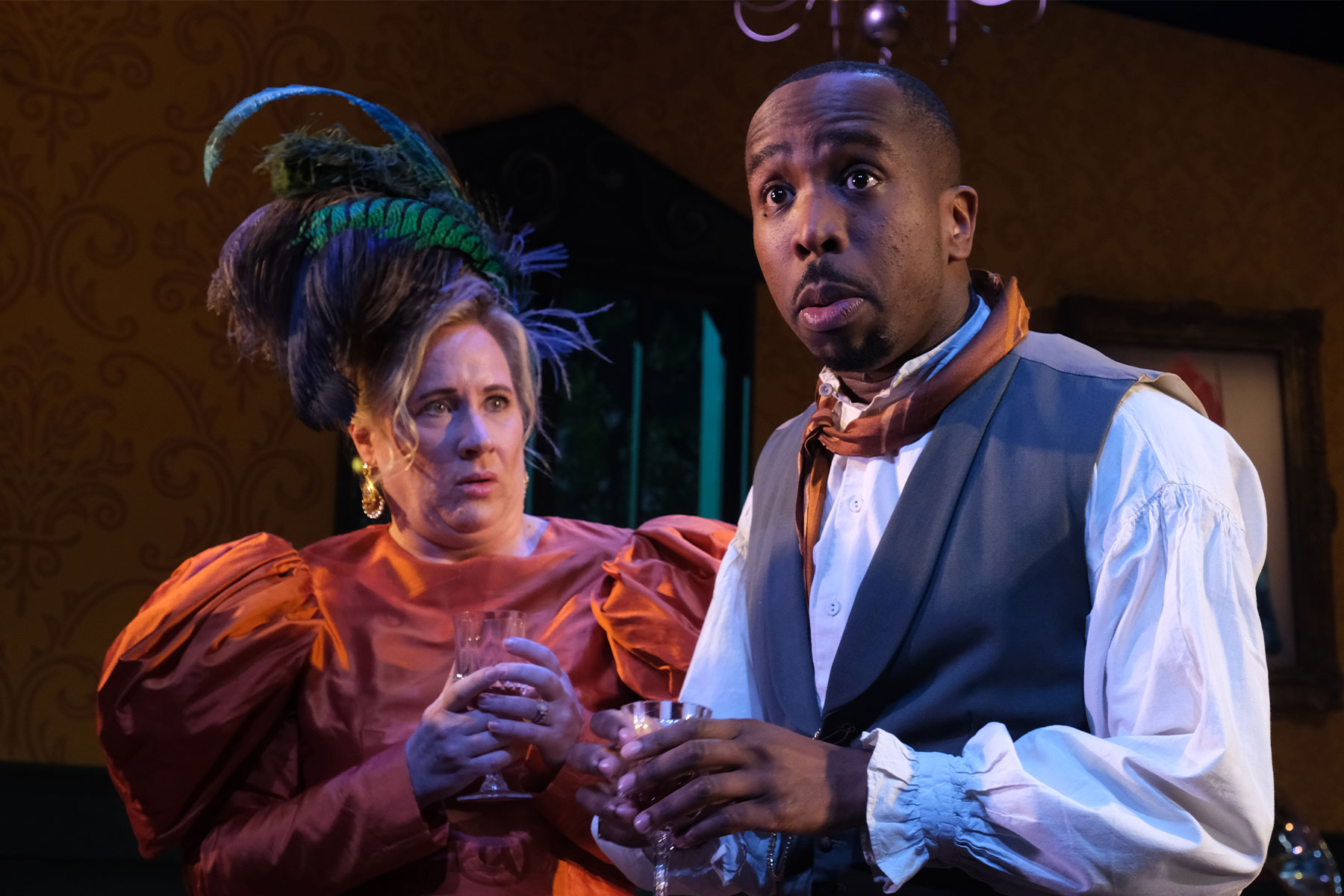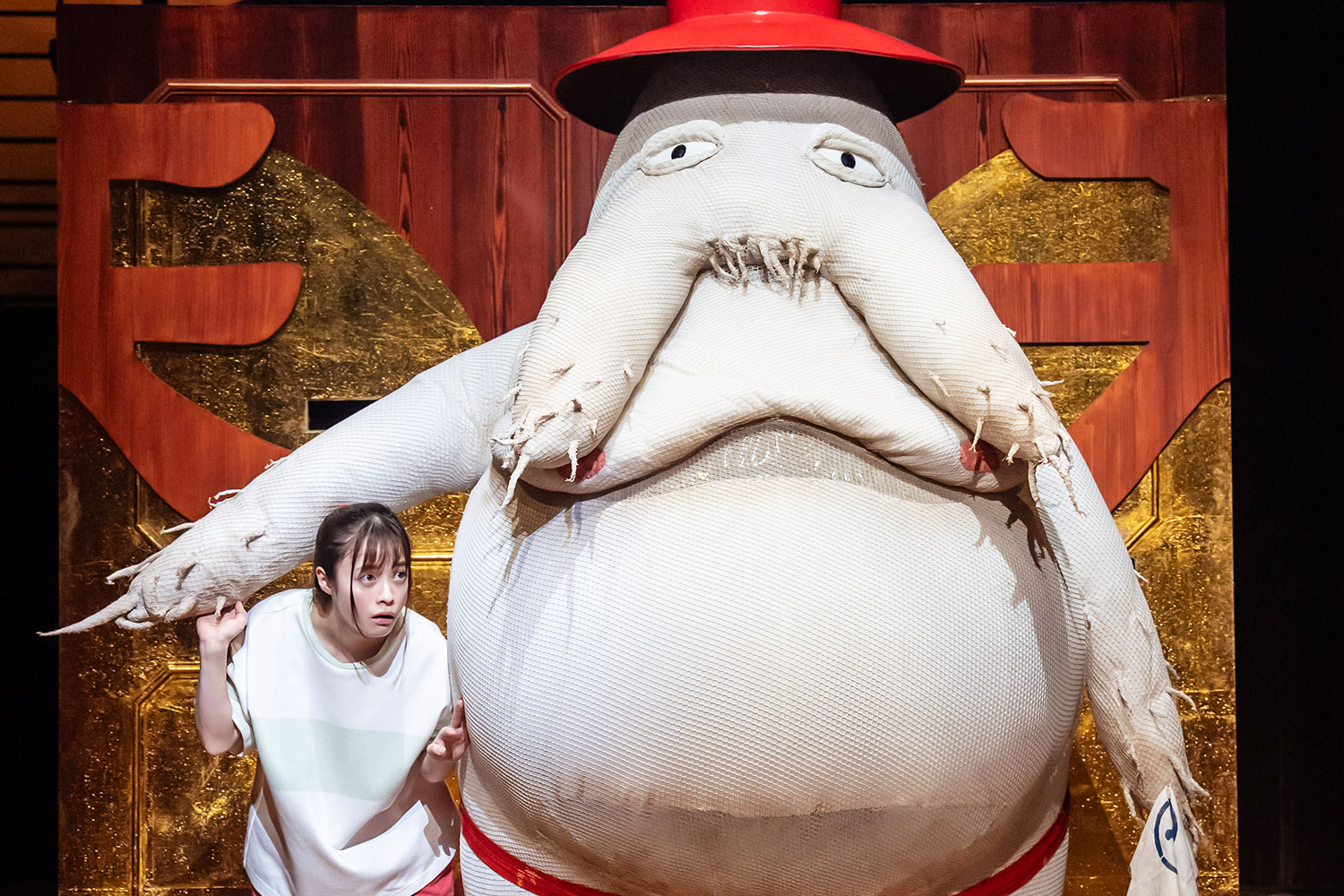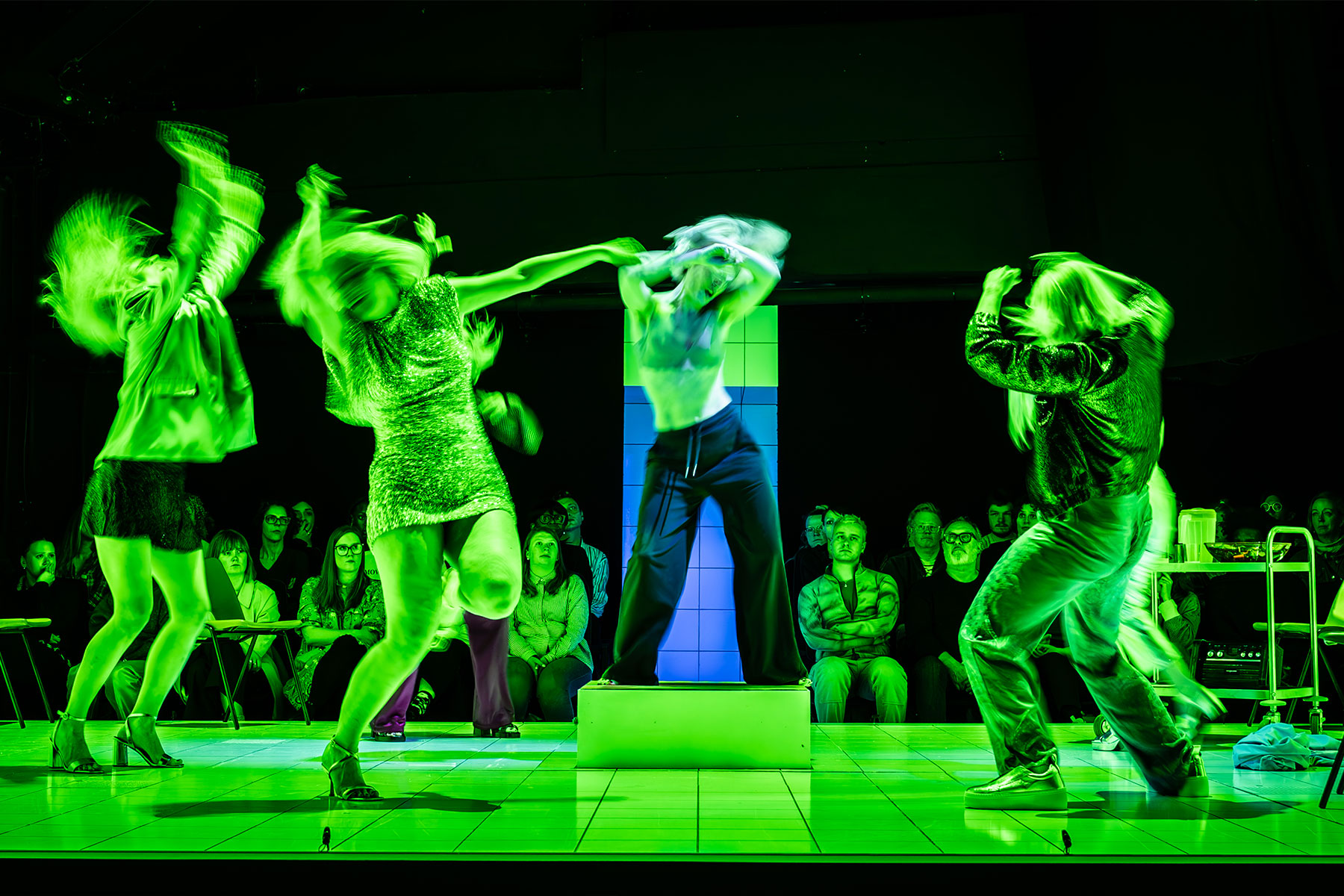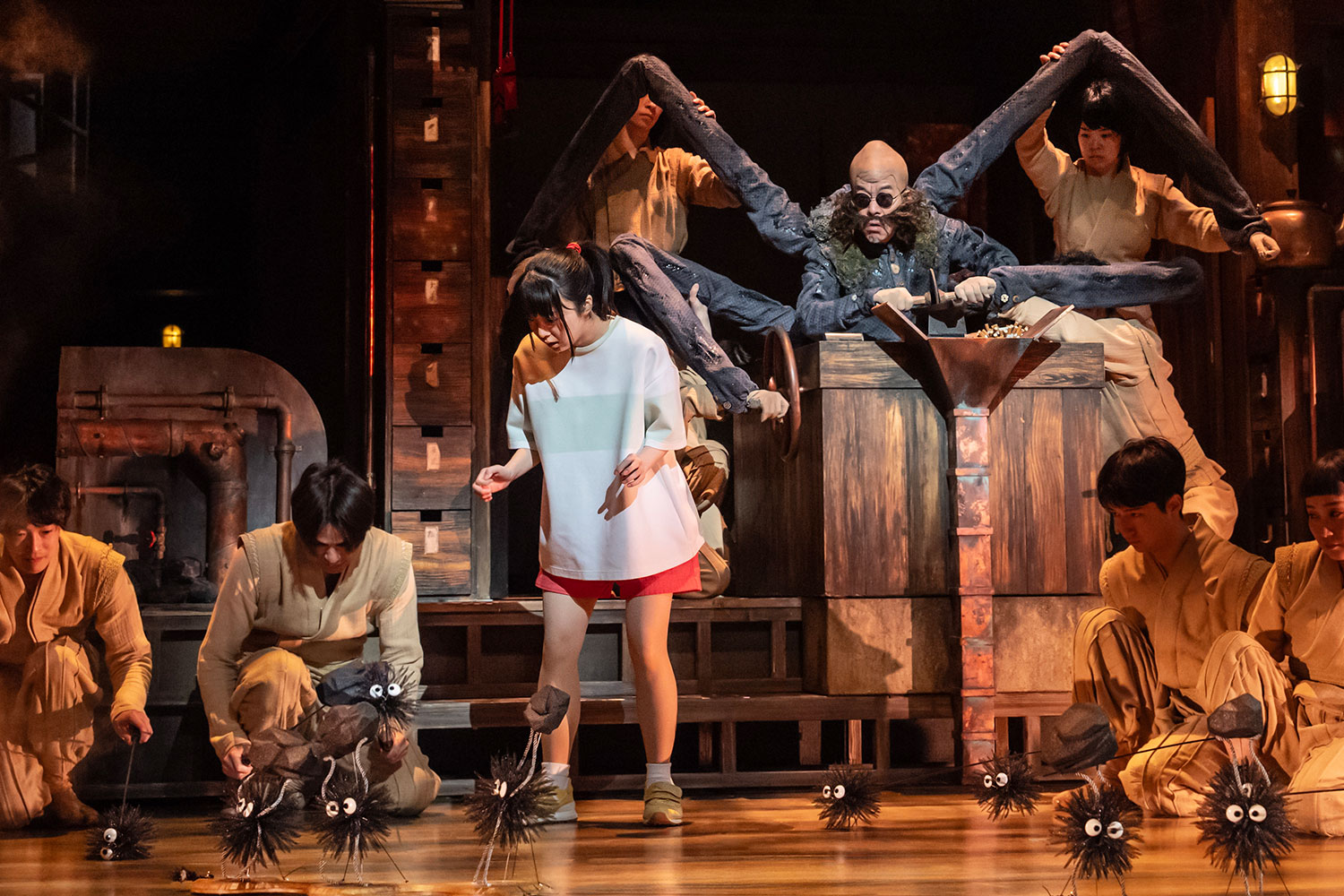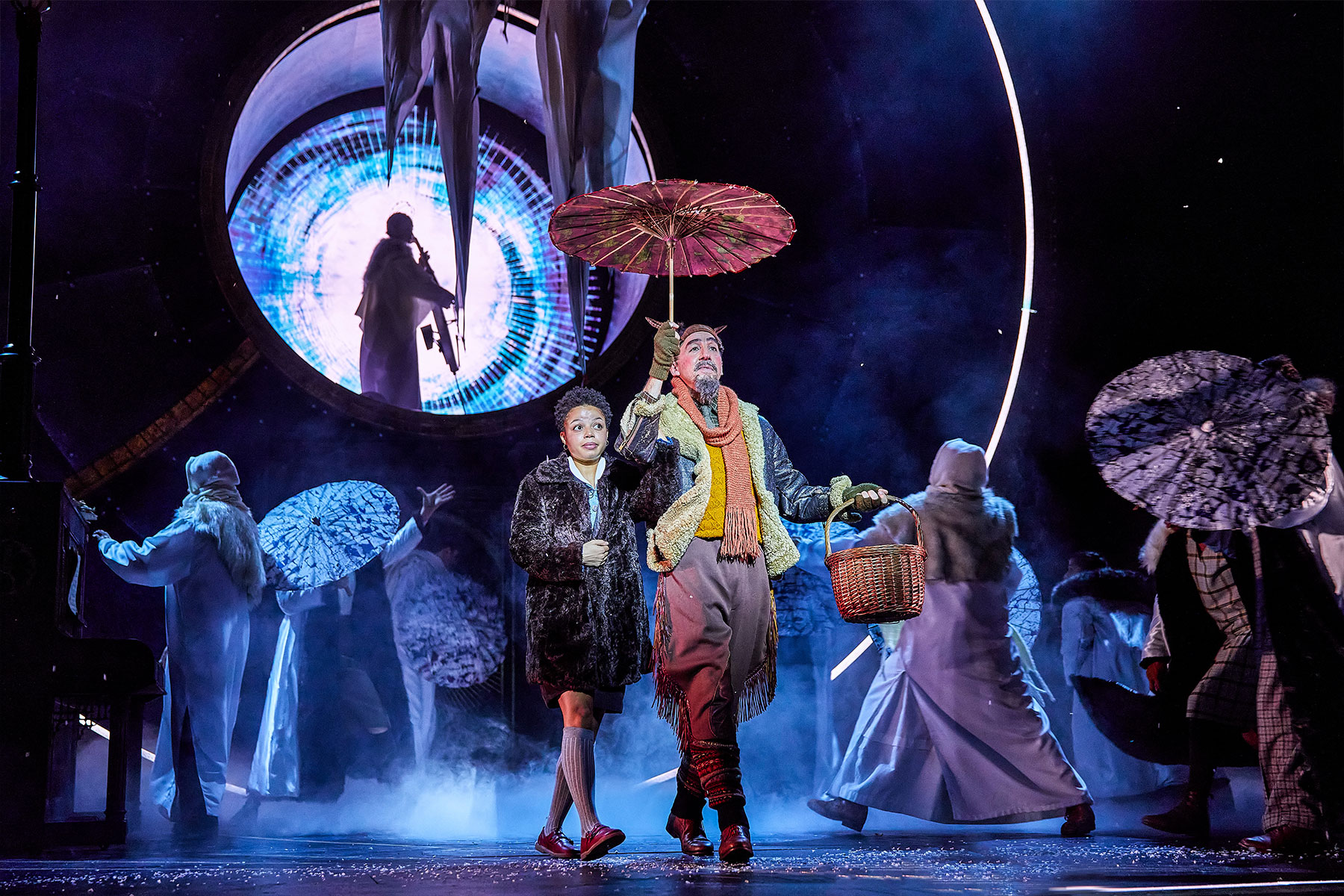20 Questions With…Laurence O’Keefe
While studying anthropology at Harvard University, American composer and lyricist Laurence O’Keefe received his first real education in writing stage musicals working on, and performing in, the undergraduate Hasty Pudding Show, a long-standing drag institution.
Following post-graduate courses in film scoring and composition (in Boston and Los Angeles) and in Russian language and drama (in Moscow), O’Keefe had his first professional stage experience with the renowned LA-based Actors’ Gang, for whom he wrote the music and lyrics for Imaginary Invalid and Euphoria.
It was during a performance of the latter that he was approached by Keythe Farley and Brian Flemming about creating the score for their new show, inspired by a Weekly World News story about a half-bat, half-child creature found in a cave in West Virginia.
Bat Boy The Musical premiered at the Actors’ Gang Theatre in LA in 1997 before further development and a New York premiere Off-Broadway in March 2001. Despite accolades including both New York’s Outer Critics Circle and the Lucille Lortel Awards for Best Off-Broadway Musical, the show closed the following December having been badly hit after 9/11.
In the UK, Bat Boy premiered this past June at Leeds’ West Yorkshire Playhouse, where it had a four-week season, before transferring this week to the West End’s Shaftesbury Theatre.
O’Keefe’s other musicals include The Mice and Sarah, Plain and Tall, co-written with his wife Nell Benjamin, with whom he’s also currently collaborating on a stage adaptation of the film comedy Legally Blonde. Also in development, with David Shiner, is a new clown show/musical titled Drop Everything.
O’Keefe is the recipient of the 2004 Ed Kleban Award, the US’ highest honour for lyricists, as well as the 2001 ASCAP Foundations’ Richard Rodgers New Horizons Awards and a 2001 Jonathan Larson Award for music and lyrics.
Date & place of birth
I was born on November the 4th in New York City. The year? Can we just say I’m in my extremely late 20s?
Lives now in
I live in New York and Los Angeles and a lot of airports. In London, right now we’re in a flat in Blackfriars.
Training
I studied music from a very early age, piano from the age of seven, singing from forever. I thought I was going to be an actor actually, but I had a good bit of advice right as I was graduating from college. I went to an audition in New York when they lost their audition pianist. Knowing I could play, the producer asked me to stay. I played and three hours later he handed me $300 and said, “If you have any other job skills, don’t be an actor.” And I said, “Is that in general or for me?” He said, “Both.” A dream died that moment, but it turned out really well because I’m on the right side of the table now. It’s much more fun and powerful and exciting to be the one making the content.
My degree from Harvard University was actually in anthropology. Why? Well, okay, all the anthropology courses met in the afternoon so I didn’t have to get up early. That was the main reason. Also, anthropology is the holistic study of all human beings and cultures and so therefore a lot of other inter-disciplinary courses could count for credit. So I could take drama courses and music courses and they counted. I’m not really sure how I wound up here. After college, I went to Berklee College of Music in Boston to do film scoring and then I went to USC for a Masters in composition for film… There is a pattern here, I just never really looked for it.
First big break
In a weird way, the first big break was the Hasty Pudding Show, which is an undergraduate tradition at Harvard. It’s actually America’s oldest drag show and America’s oldest continually performing theatrical organisation. The shows – which are a very old-fashioned style of musical theatre, albeit with an all-male cast – happen every year and they teach you a lot of the skills that you can’t get anywhere else because no one will teach you. People say there’s no way to teach you how to write a musical, but there actually is because some things always remain the same. For example, you always want to start with a big bang, you always want to end with a big bang and somewhere in the middle of Act Two there’s got to be a really big torch song or 11 o’clock number as they call it or some sort of soliloquy. It was a really concentrated and brilliantly dense education in the nuts and bolts of how to put a show together – and how to entertain first and foremost. There’s nothing else like it in America, and maybe the world over. It also had a huge budget and a professional schedule, eight shows a week for a five or six-week run, and audiences pay to see it so you get to see right away what works and what doesn’t work. Of course, because you’re 19 years old when you’re writing it, a lot of it doesn’t work. But the audiences are forgiving. The ability to make that many mistakes that early saves you a lot of mistakes later on.
In terms of my career, the big break was probably the Actors’ Gang in Los Angeles. They are as un-Hollywood a group of people as you’re ever likely to meet – hyperactive, left-wing, political, hard-core theatre freaks who put on brilliant agitprop shows, very hyperkinetic and acrobatic shows, sometimes with kaleidoscopic instead of linear plots. Real experimental stuff, so in-your-face. I got to do a couple shows there. Our adaptation of Imaginary Invalid had this almost Cirque du Soleil quality, and then Euphoria was about drug abuse throughout history and had 120 characters and 30 interweaving plots. It was in the lobby of the Actors’ Gang, during an intermission of Euphoria, that Keythe Farley and Brian Flemming (the creators of Bat Boy The Musical) came up to me and said, “We like your music. Would you be interested in working on this?” And they held up this picture from the Weekly World News with the headline “Bat Child Found in Cave”. I said, “Wow. That is the ugliest thing I’ve ever seen …. Yes, I’ll do it.”
Career highlights to date
I’ve got some highlights coming up! I’ve been working with Theatre Works USA, which is the biggest children’s theatre in America. They sends shows to towns all over the country, shows based on great books like Charlotte’s Web, Curious George and, in my case, Sarah, Plain and Tall, a sweet book and very famous in America. We turned it into something darker, with more depth and more sorrow and more pain, but also funnier I hope. Last year we took it to the O’Neill Festival and, through the development process there, turned our 75-minute children’s show into a full-length, two act, grown-up show with even more pain, death and laughs. We’re very proud of it and hope to see it produced as a grown-up show next year then hopefully take it to New York. I should mention that the lyrics for Sarah, Plain and Tall are not mine. I do my own lyrics whenever I can, but there is a lyricist who’s fifty times better than me. That’s Nell Benjamin, who did Sarah, Plain and Tall and also some other projects I’m doing. Nell is so much better than me that I had to marry her. It’s a very very selfish reason to get married – you know, keep your friends close, keep your competitors closer.
Favourite actors
Actors I admire, on stage and screen, are Kevin Spacey and Christopher Walken. I think our Bat Boy, Deven May, is fantastic. I know so many great actors. Who needs a special mention? Oh, there’s a guy in the Actors’ Gang, he’s actually in Embedded, which is coming to London this month. His name is Steve Porter and he’s a clown, an amazing performer. I adore his work. I suggest you go see him.
Favourite directors
Brad Rouse, who directed a short musical Nell and I did called The Mice, which was produced by Hal Prince as part of three-part evening showcase. And also Joe Calarco, who directed Sarah, Plain and Tall. Both Brad and Joe are utterly brilliant, they’re visionaries. They’re both really young and so on top of the interpersonal stuff, which makes them amazing collaborators.
Favourite writers
Well, there’s Brian and Keythe, and Nell, of course. Nell won the Ed Kleban Award last year. That’s America’s biggest award for lyricists. Luckily, I won it this year – otherwise, I might have had to quit! The two best writers on Broadway at the moment are Jeff Marx and Bobby Lopez, who wrote the music and the lyrics together for Avenue Q. They are just a cut above – entertaining, smart and always funny. I will always always always love a really good joke over a tricky lyric. I wish I’d written Avenue Q. And maybe Guys and Dolls and A Little Night Music too.
What’s the secret to a great show song?
Here we go! First, a surprise in the middle, or at least before you get to the end. Second, irrevocable plot movement. In other words, at the end of every verse, something has changed. A good example of a song that just does that effortlessly, is “I Will Survive” by Gloria Gaynor. Well, the first half of it is perfect. It builds and builds and builds. Although the music is almost identical – the melody of the chorus is almost the same as the verse, practically identical chords – somehow you know the energy is coming. The problem with verse two – which starts “It took all the strength I had not to fall apart” – is that it backtracks on the story, but because by then the song has earned so much goodwill, we’re willing to go back over the same material. The best lyric in the entire song is a bit later: “You see me, somebody new / I’m not that chained up little person still in love with you”. And that’s like, Bam! It utterly transforms the song. In a great song, everything should seem surprising yet inevitable, much like in great theatre. Oh, and that’s my third point – tricky lyrics and clever rhymes are never as useful as surprising jokes or surprising ideas.
What, if any, differences have you noticed between UK & US audiences?
I haven’t really noticed any. I’ve actually noticed more of a difference from night to night. Some nights they want to take the show more seriously, other nights they want to feel the comedy more. Both in New York and in London, you can see a couple in the audience where the guy’s literally laughing his ass off while his date is weeping. That’s just so great, very gratifying. When we brought Bat Boy over, we wanted to remove any jokes that were too US-centric. For example, a line about a CPA (Certified Public Accountant) filing your taxes. I changed that.
What’s the best thing you’ve seen on stage recently?
Avenue Q, absolutely, because it had surprising pathos and tragedy, inside this hilarious and confident framework. If you don’t know the show, I think the easiest description is a grown up, X-rated Sesame Street, but much deeper.
What would you advise the government – American or British – to secure the future of theatre?
I’d say spend millions and millions and millions of dollars or pounds in sending theatre people into schools to conduct long, intensive workshops in writing and performing. Study after study shows that, if you involve children in music or theatre programmes, they learn so much more so much more quickly. Not just about the arts, but about being in society and getting along with people. If you do that, you’re going to not only create the audiences of the future, but also smarter happier kids. Also I’d say, more tax breaks for commercial theatre, absolutely. Commercial theatre is hard and expensive enough. Of course, I do not pretend to know anything about public policy concerning tax breaks. If the governments in London and New York are already doing everything they can to make a producer’s job easier – so that you can have happier producers and more viable shows – then all I have to say is, thank you very much.
If you could swap places with one person (living or dead) for a day, who would it be?
Probably someone in the worst, poorest, most deprived place in the world, so that I could really learn something.
Favourite books
The collected verse of Hilaire Belloc, especially the funny stuff. Belloc wrote hysterical Victorian children’s rhymes about kids who disobeyed and died horribly: “The chief defect of Henry King / was chewing little bits of string. / At last he swallowed some which tied / Itself in ugly knots inside,” etc.
Also, the collected verse of Catullus. He was a Roman poet who wrote incredibly dirty poems, really really filthy stuff.
Favourite holiday destination
Bermuda. That’s where the Hasty Pudding Show used to go during spring break every year. Another great education.
Favourite websites
The Onion, Doonesbury.com, and one more, the Batboy show website.
If you hadn’t become involved in theatre, what would you have done professionally?
I’m almost going to cop out and say music. If not that, I would have been in linguistics – I used to be fluent in Russian and studied and worked in Moscow after college – or anthropology or teaching or something involving bicycles.
How did Bat Boy The Musical come about?
Back in 1992 or ’93, the Weekly World News (an American tabloid newspaper) put that famous picture on its cover with the “Bat Child Found in Cave” article about this bunch of spelunkers who happened upon this creature in a cave in West Virginia. Now, the Weekly World News have been accused of making up their stories, but I for one believe Bat Boy is completely real (chuckles) and we’re saving a seat for him at the theatre just in case he shows up. Keythe Farley and Brian Flemming, who were friends, saw this piece and started to make up funny stories and little songs about the Bat Boy that they’d do at parties. One night – I think they were really really drunk – they realised there was a real story here. So they optioned the rights to the character from the Weekly World News and started writing in earnest. Three years later they were still tinkering with the script when they approached me to do the music. For another year we worked on adding the songs in. We opened on Halloween 1997 at the Actors’ Gang Theater in LA and were a big smash. But we knew that, even though we were sold out and extended our run, this was just version 1.0. We kept doing edits and rewrites and then, kind of just for the hell of it, sent a tape off to the American Academy of Arts and Letters. I guess it’s the closest thing America has to the Academie Française and it administers the Richard Rodgers Award, which we won and which gave us a big chunk of money to pay for a reading in New York City. That’s where we hooked up with the Directors Company, a great developmental theatre, and did a reading and got some attention, and did some more rewrites. Then we found out we’d won another Richard Rodgers Award – I didn’t even know that was legal – and that paid for more readings and then producers came on board. We did the show at the Union Square Theater Off-Broadway and right when we were going to announce for Broadway, 9/11 happened. We closed soon after that, but we always promised we’d be back.
Why has it taken so many years to bring Bat Boy to the UK?
Honestly, most of us never expected to make it to the UK at all so we’re delighted. Because, you know, the world has been in quite a bit of turmoil so for anybody to do any kind of theatre in the last few years is very brave. Michael Alden, the producer for the UK run, was one of our New York producers, and he was always like, “we’re going to make it happen, we’re going to make it happen”. He worked a miracle. So I don’t think this transfer is longer than expected, I think it’s well before expected.
What’s your favourite number from Bat Boy?
I change but right now, it’s the new ballad in Act Two called “Mine, All Mine”. It’s a rewrite of a moment that had always bothered me. Often, if a song isn’t making you happy, the reason can be found two and a half pages before the song begins. It’s right around there that you’ve probably made a choice that inevitably leads you in either the right direction or the wrong direction. I think we may have fixed it now for this song.
What are your influences for the show’s various musical styles?
This is my disclaimer: Bat Boy is not a parody of other musicals, and its point is not to reference other shows. Yes, the New York production was choc full of references to other shows, but that was in the production not the text. People will always look for references, especially in this day and age with The Producers and Urinetown. Stupidly, when people would ask me if there were parodies in New York, I stupidly would say “yeah! sure!” to be nice. But now I am discouraging that label. I mean, yes, there are different song types. There’s a rock ’n’ roll number for an angry moment, a country type sound for the population of West Virginia, and Bat Boy himself runs the gamut from grand opera to heavy metal because of his character development. My influences for the show have been very much more comedy influences. What I’m aiming to feel like is a cross between Greek tragedy and The Simpsons. And also, like I said before, songs that surprise. One thing I love to do is take a heartfelt or beautiful or touching moment and then wreck it, you know just ruin it, for a laugh.
What are your plans for the future?
Nell and I have just been hired to write the music and lyrics together for Legally Blonde – The Musical. Fox Theatricals, who did Thoroughly Modern Millie, and MGM, who did the movie of Legally Blonde, are producing and we’re writing it now. I work on the Bat Boy production during the day and then, from midnight to 4.00am, I’m writing Legally Blonde. Their goal is Broadway and they’re going to go in big so I wouldn’t rule it out of coming to London, too. I think Legally Blonde is actually very fertile material. At the heart of the story is a relentlessly positive character who solves problems in creative ways. That’s sometimes all you need for a good musical.
Bat Boy The Musical opens at the West End’s Shaftesbury Theatre on 8 September 2004, following previews from 18 August and an initial UK run at Leeds’ West Yorkshire Playhouse.



